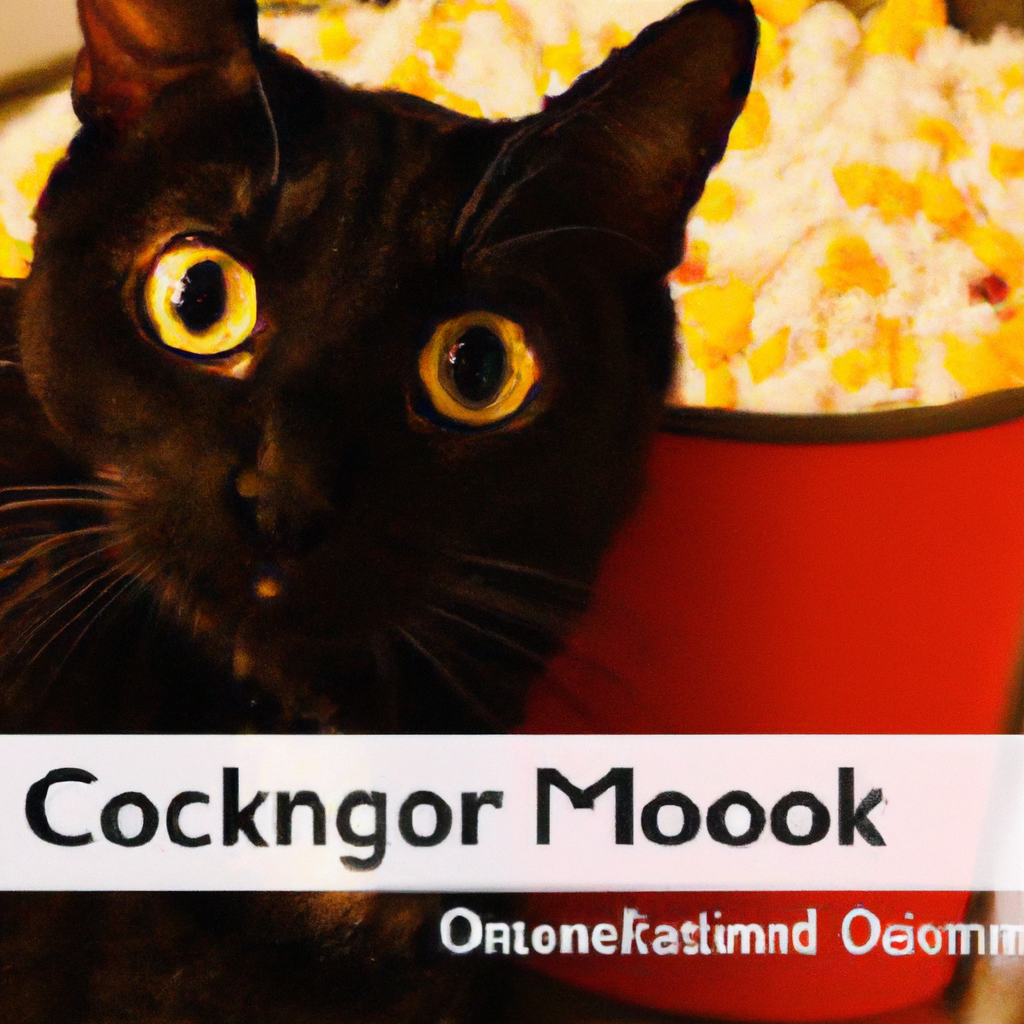Are you a popcorn lover who also happens to share your home with a feline friend? If so, you may have wondered at some point whether it’s safe for your furry companion to indulge in this movie night staple. In this article, we will explore the topic of cats and popcorn, answering the burning question – can cats eat popcorn? Join us as we uncover the potential risks and benefits of feeding popcorn to your beloved kitty.
Can Cats Eat Popcorn?
If you’re a popcorn lover and a cat owner, you may have wondered whether it’s safe to share this delicious snack with your feline friend. After all, cats are curious creatures and often try to swipe a bite of whatever you’re eating. So, can cats eat popcorn? The answer is yes, but with certain precautions.


Types of Popcorn
Before we delve into the topic, let’s explore the different types of popcorn available. Popcorn comes in various flavors, such as butter, cheese, caramel, and even spicy options. It’s important to note that when considering whether or not to feed popcorn to your cat, it’s best to stick to plain, unsalted, and unbuttered popcorn. Artificial flavors, added salt, and other seasonings can be harmful to cats.
Nutritional Value of Popcorn
Popcorn is a whole grain snack that is relatively low in calories and fat. It contains fiber, protein, and various vitamins and minerals, including manganese, magnesium, phosphorus, and zinc. However, cats have different nutritional requirements than humans, and while a small amount of popcorn can be safe, it should never replace a balanced cat diet.
Potential Risks of Popcorn for Cats
While plain, unsalted popcorn can be safe for cats in moderation, there are some potential risks to consider. The biggest concern is the possibility of choking. Popcorn kernels can easily get stuck in a cat’s throat or digestive tract, leading to discomfort and potential complications. Additionally, the sharp hulls of the popcorn kernels can cause damage to a cat’s gastrointestinal system if swallowed without being fully chewed.


Can Cats Digest Popcorn?
Cats are obligate carnivores, which means their digestive systems are primarily designed to process meat. While a small amount of popcorn is unlikely to cause significant digestive issues, cats may struggle to digest the carbohydrates found in popcorn. This can lead to indigestion, upset stomachs, or diarrhea. If your cat has a sensitive stomach or existing digestive issues, it’s best to avoid feeding them popcorn altogether.
Benefits of Popcorn for Cats
Despite the risks and potential digestive challenges, there are some potential benefits to feeding popcorn to your cat. The fiber content in popcorn may help promote healthy digestion and prevent constipation in some cats. Additionally, the act of chewing popcorn may help to keep your cat’s teeth clean, reducing the risk of dental problems such as tartar and gum disease.
Feeding Popcorn to Cats
If you decide to share a small amount of plain, unsalted popcorn with your cat, there are a few important guidelines to follow. First, make sure the popcorn is fully popped, and remove any un-popped kernels to prevent choking hazards. Second, offer only a few pieces of popcorn at a time and monitor your cat’s reaction. If they show any signs of discomfort or distress, it’s best to stop feeding them popcorn immediately.
Alternatives to Popcorn for Cats
If you’re concerned about the potential risks or your cat simply doesn’t enjoy popcorn, there are plenty of alternative treats you can offer. Some safe and healthy options include small pieces of cooked chicken or turkey, freeze-dried meats, or specially formulated cat treats that are designed to meet their nutritional needs.
Signs of Allergic Reactions to Popcorn
Just like humans, cats can also be allergic to certain foods. While popcorn allergies in cats are relatively rare, it’s important to be aware of the potential signs of an allergic reaction. These may include itching, redness or swelling of the face or paws, vomiting, diarrhea, or difficulty breathing. If you notice any of these symptoms after feeding your cat popcorn, consult a veterinarian for guidance.
Moderation is Key
When it comes to feeding popcorn to your cat, the key is moderation. While a few pieces of plain, unsalted popcorn are unlikely to cause harm, it should never become a staple of their diet. Remember, cats have specific dietary requirements, and their health and well-being should be prioritized by feeding them a balanced and species-appropriate diet.
Consulting a Veterinarian
If you have any concerns or questions about whether or not it’s safe to feed popcorn to your cat, it’s always best to consult with a veterinarian. They can provide professional guidance based on your cat’s specific needs and help ensure that their diet remains healthy and balanced.
In conclusion, while cats can eat popcorn in small amounts, it’s important to consider the potential risks, digestive challenges, and nutritional value before sharing this snack with them. Moderation, careful observation, and consultation with a veterinarian are key to ensuring the safety and well-being of your furry friend. Remember, there are plenty of other cat-friendly treats available that are specifically formulated to meet their dietary needs.

